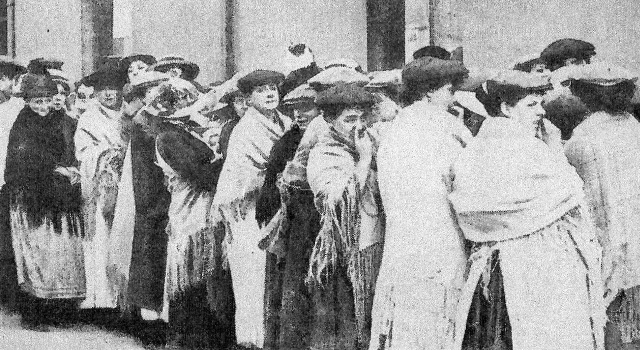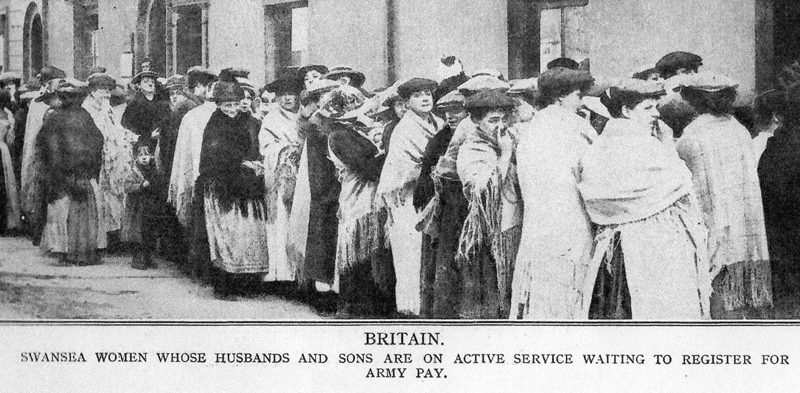Articles

No Comments
By Voices
On 10, Nov 2014 | No Comments | In Gender | By Voices
The Women Left Behind
Soldiers’ Widows in First World War Britain
Dr Janis Lomas
The 31st of October 2014 is the centenary of the Battle of Gheluvelt, which has an almost mythical status in Worcestershire. Given the high casualty rate it is worth also considering the provisions that the British government put in place to provide for the families of men fighting in the First World War.
Sources as varied as government and newspaper reports and letters from war widows themselves demonstrate that both separation allowances and war widows’ pensions were totally inadequate in the first two years of the war and families often relied on service charities to top up the amounts they were given. The pension given to the working class widow of a private soldier was so miniscule that her financial survival and that of her children was largely dependent upon the additional charitable doles, which the charities supplied. These could be suspended or withheld if doubts were expressed about the widows’ worthiness.
 As complaints about the administration of war pensions became more vocal and the introduction of conscription became inevitable, the government recognised that the scale of the deaths on the Western Front required a more regulated, uniform solution and in early 1917 the Ministry of Pensions was formed and the administration of pensions was moved away from the control of charities to the state. Despite this however, both separation allowances and the war widows’ pension were still not seen as a statutory right but a ‘bounty’ and women still had to be deserving. To this end, working class women were regulated as to their behaviour, the care of their children and their moral rectitude. A committee within the Ministry of Pensions decided on any charge of unacceptable behaviour brought against war widows with no right of appeal, leaving the women vulnerable to any malicious charge. An examination of the war widows’ pension makes it possible to discern both change and continuity in policy towards these women. Certainly receipt of a pension took away the fear of destitution and the workhouse but there remained Victorian attitudes towards the deserving and the residuum and class continued to govern social policy towards war widows and their children.
As complaints about the administration of war pensions became more vocal and the introduction of conscription became inevitable, the government recognised that the scale of the deaths on the Western Front required a more regulated, uniform solution and in early 1917 the Ministry of Pensions was formed and the administration of pensions was moved away from the control of charities to the state. Despite this however, both separation allowances and the war widows’ pension were still not seen as a statutory right but a ‘bounty’ and women still had to be deserving. To this end, working class women were regulated as to their behaviour, the care of their children and their moral rectitude. A committee within the Ministry of Pensions decided on any charge of unacceptable behaviour brought against war widows with no right of appeal, leaving the women vulnerable to any malicious charge. An examination of the war widows’ pension makes it possible to discern both change and continuity in policy towards these women. Certainly receipt of a pension took away the fear of destitution and the workhouse but there remained Victorian attitudes towards the deserving and the residuum and class continued to govern social policy towards war widows and their children.



Submit a Comment